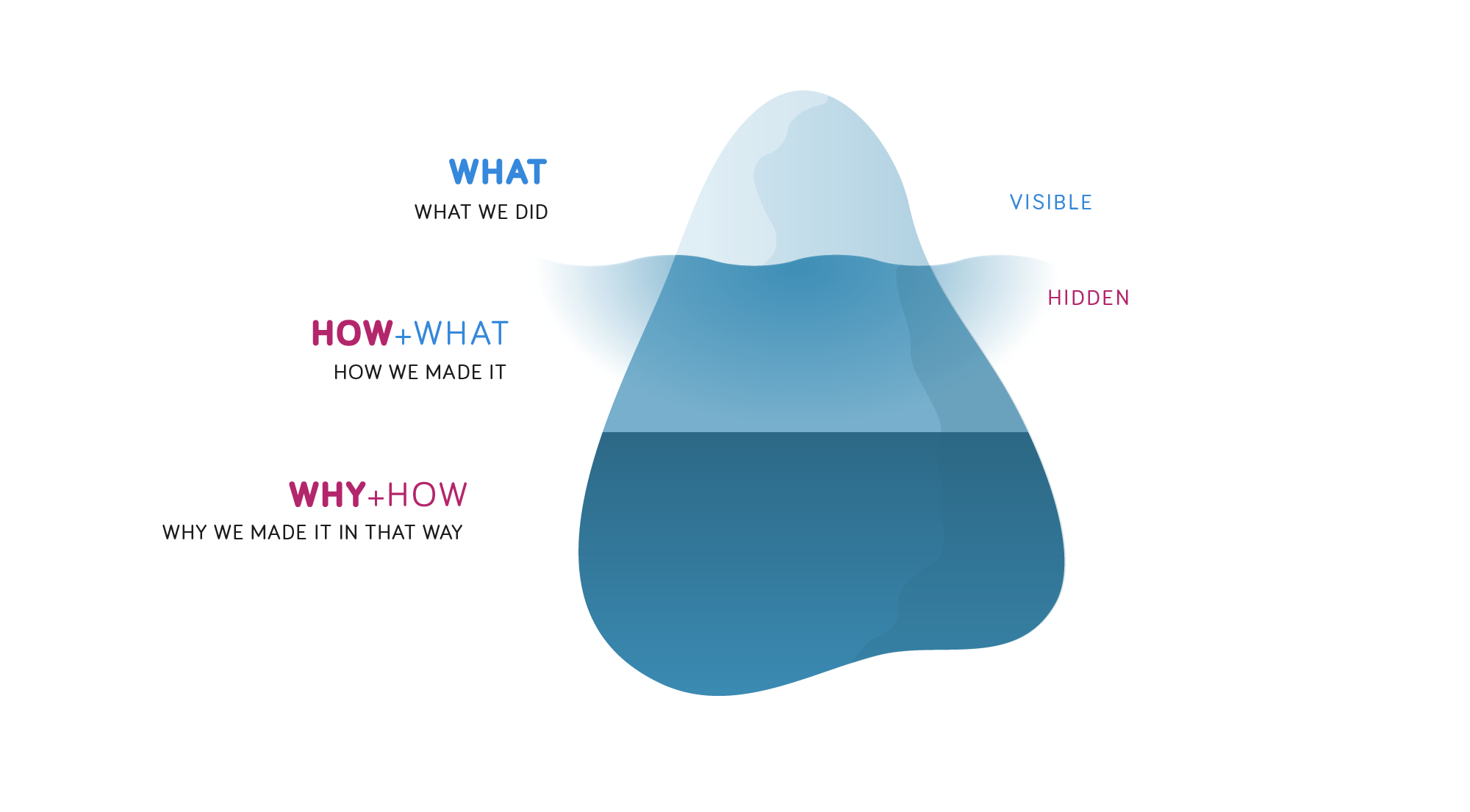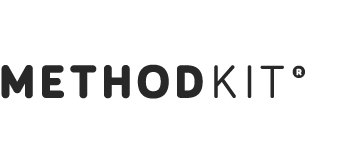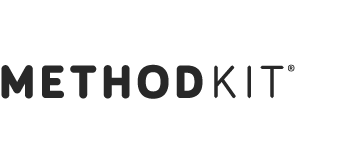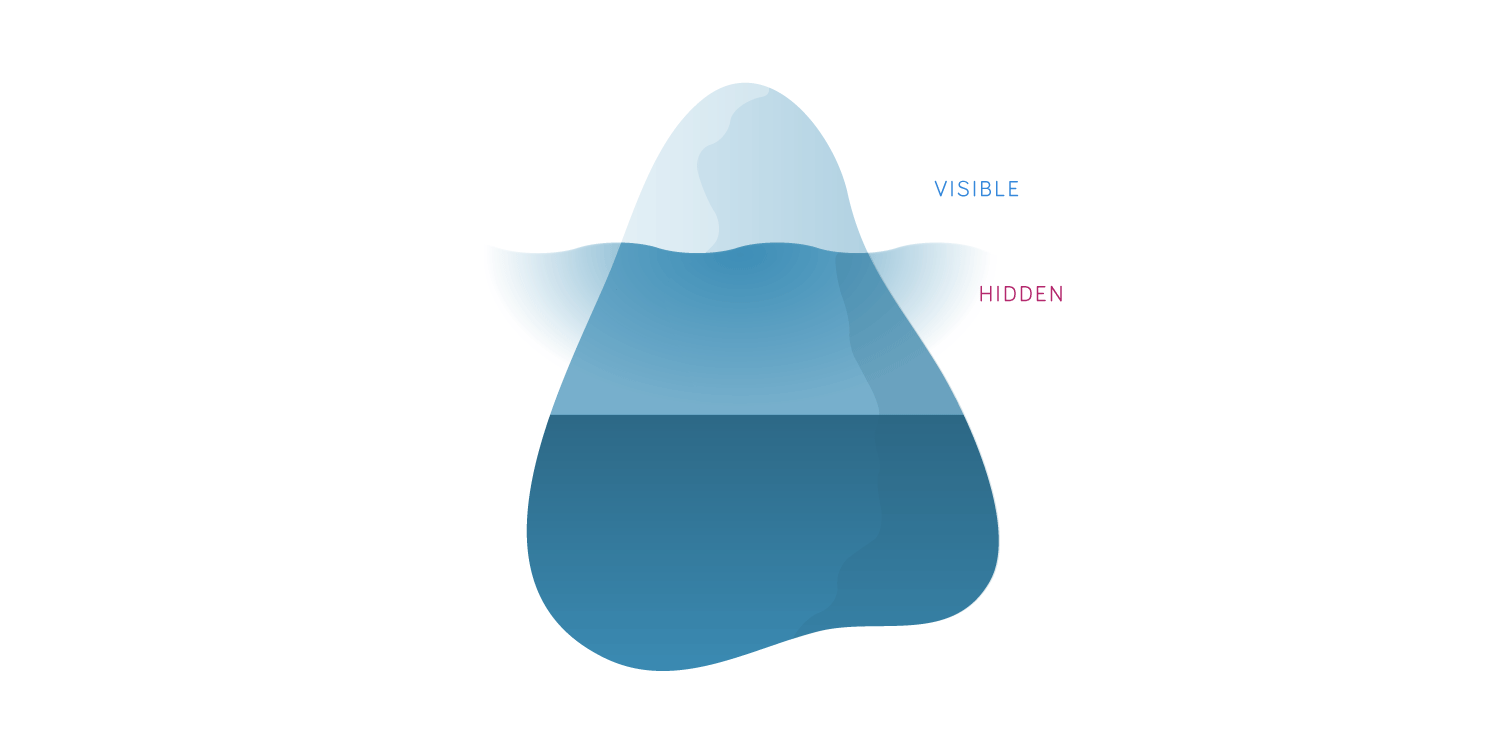
THEORY
Iceberg of How
By Ola Möller, with help from Jordan Valentin Lane
This was something that especially was on my mind during Project of How, an online bank of methods that we made 2011–12. During the project, we used the Iceberg metaphor to develop our ideas on the Art of reflection. This post is my development of those ideas.
The Model
What was done? How and why it was done?
By deciding which layers to work with, you can add structure to conversations. (We prefer ‘layers’ to ‘steps’ as we know processes rarely go in a linear process.) This allows you to make sure you stay on point and don’t drift*.* Before you start a conversation it is very useful to know which layers you need to focus on.
Layers can be combined in a sequence to help you reach your goals. By first talking about the current situation, then new ideas and last next steps.
The What(s)
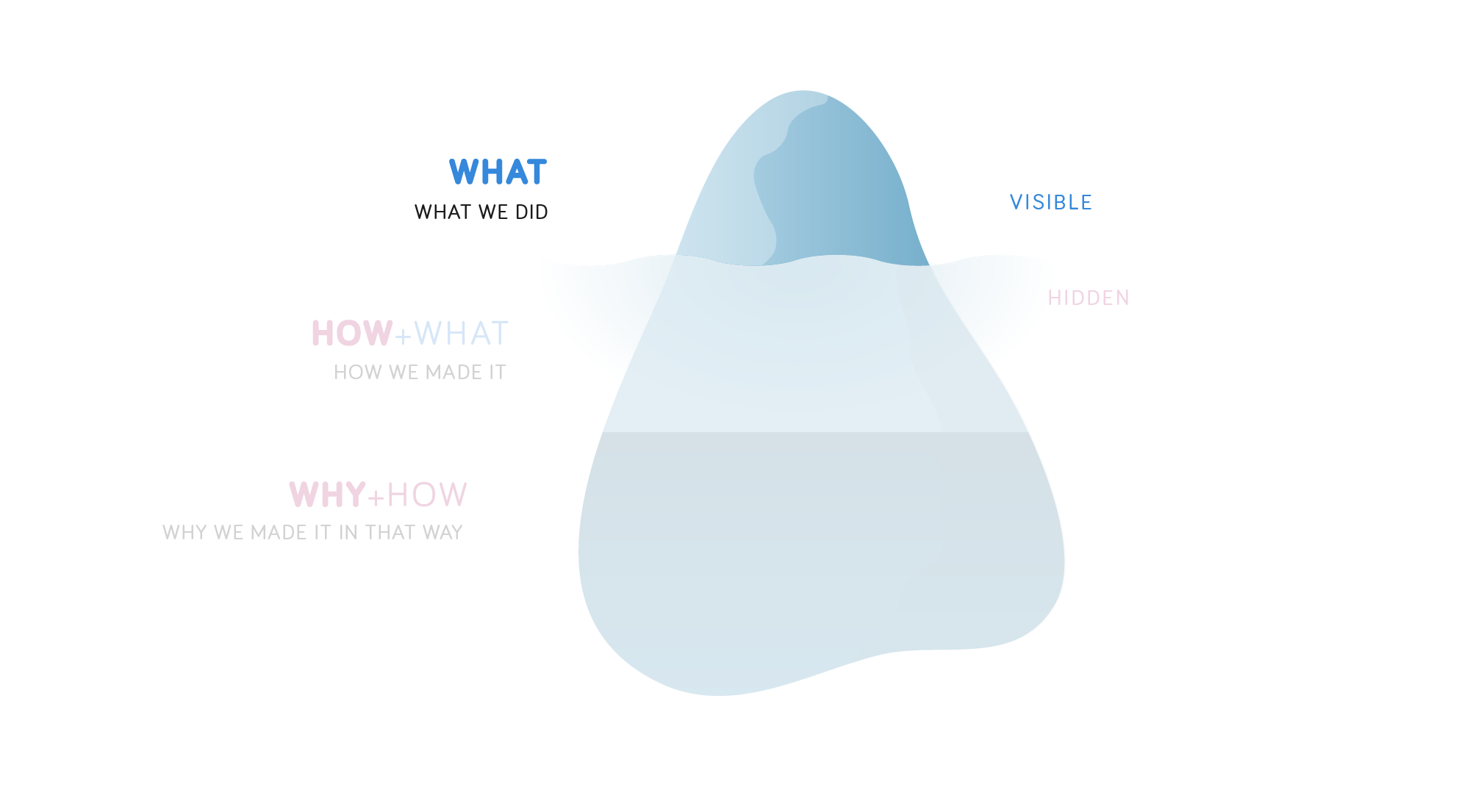
“The Whats” are tangible, often quantitative and clearly visible parts of a project. For example:
- Deadlines?
- The team (Who?/How many?/Roles?)
- Client?
- Outcome / product?
The How(s)
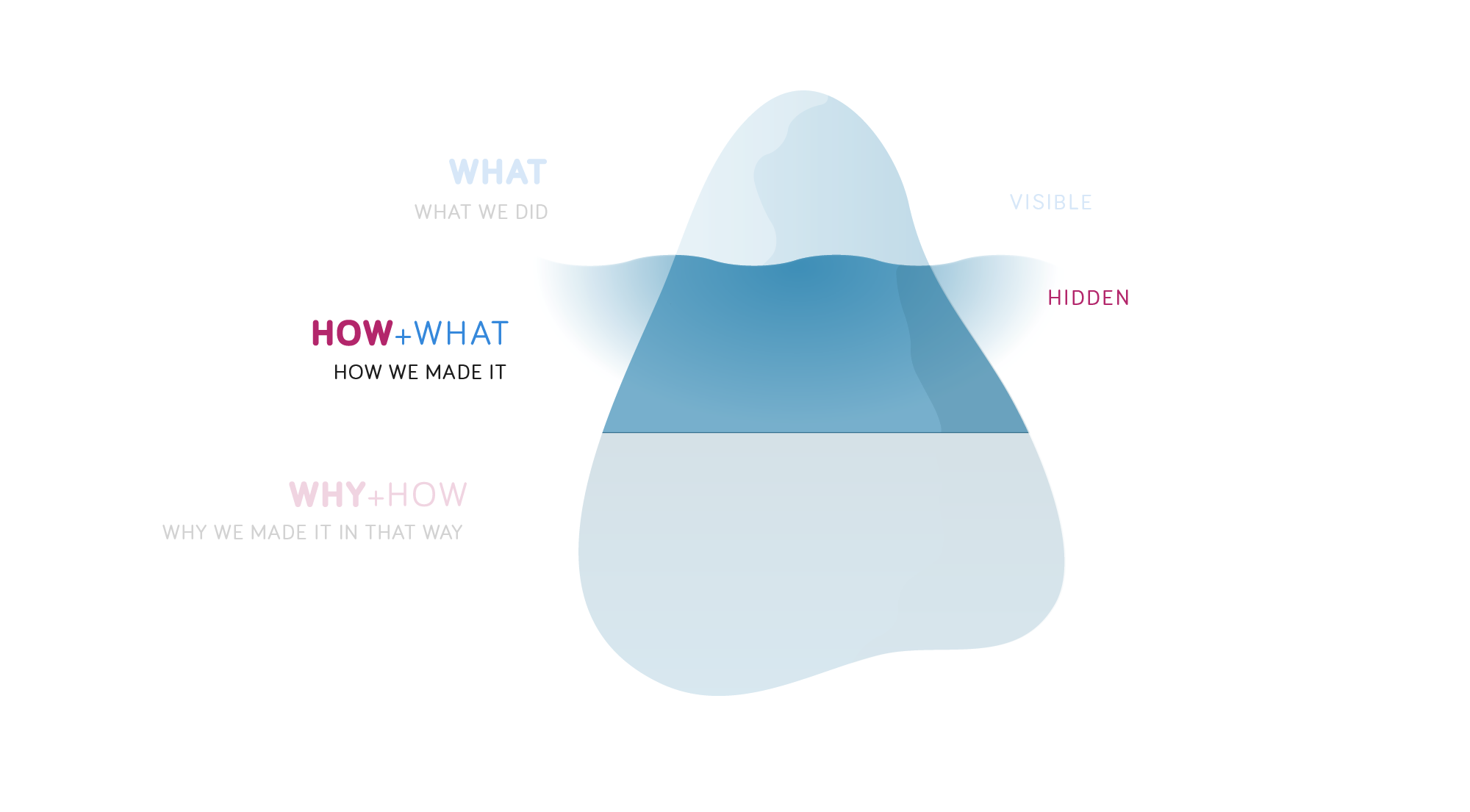
“The How(s)” are practical ways in which you get things done. These are often familiar and are not reflected upon. For example:
- Briefs & Meetings
- Division of tasks
- Planning
- Sourcing funding
- Writing
- Exhibiting
The hows provide a process description. They may appear ordered and logical because they happen chronologically, but this is rarely the truth. To better understand the nature of “The Hows”, be sure to cover the “Whys” at the base of the iceberg.
The Why
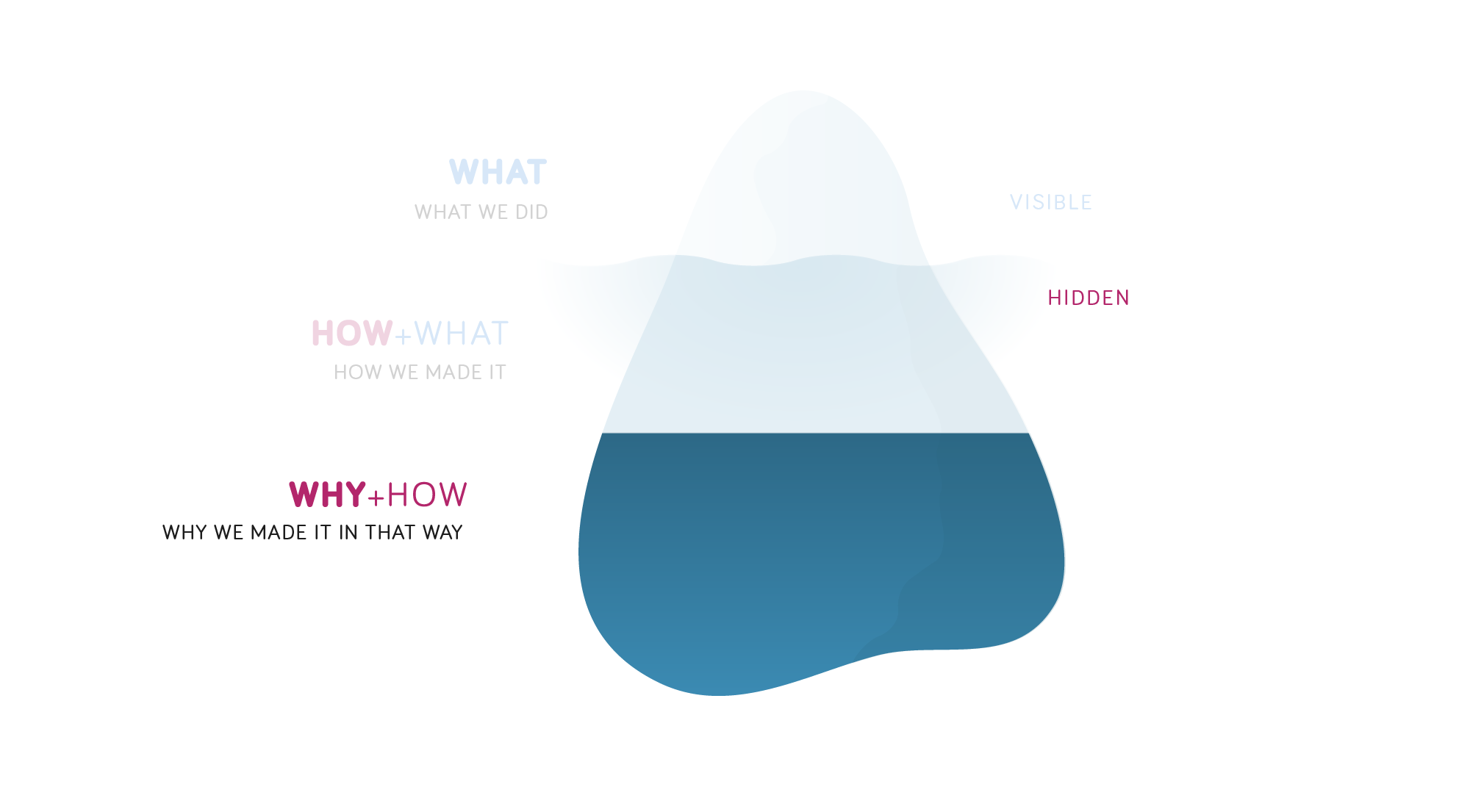
The why guides your thinking during the creative process.
The why is focused on insights and learnings. The result is only interesting to reflect upon if it gives insight on how the process can be made more effective.
- Why did you plan the project it in that way?
- What can you learn when planning a new project?
Summary
Reflection is non-prioritized and overlooked as it does not create direct tangible results. However, a deeper understanding of how things work can raise the level of productivity and wellbeing in the long run. According to Professor Stephen Heppell you can achieve around 20% better performance if you reflect on how you learn/produce. That’s basically one day a week in improved productivity.
Reflection allows a better understanding of how to design new processes of working and not only travel on tracks already built. And even though reflection might not create results in the moment it sure affects the creation of the future.
